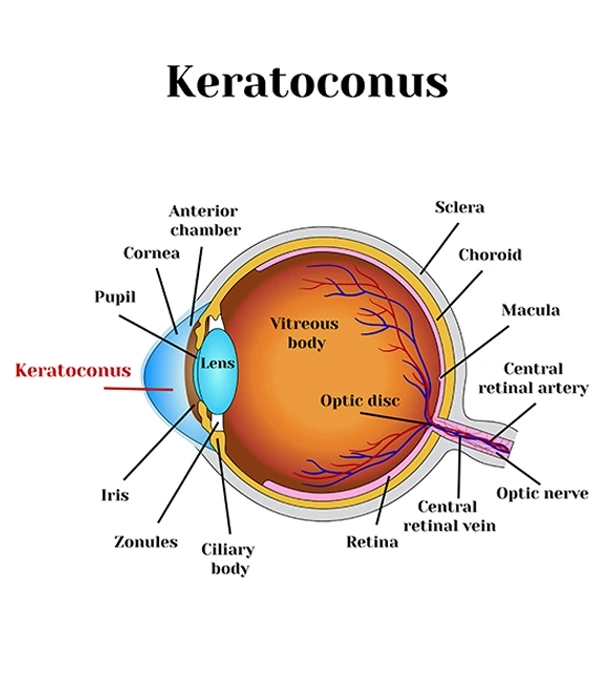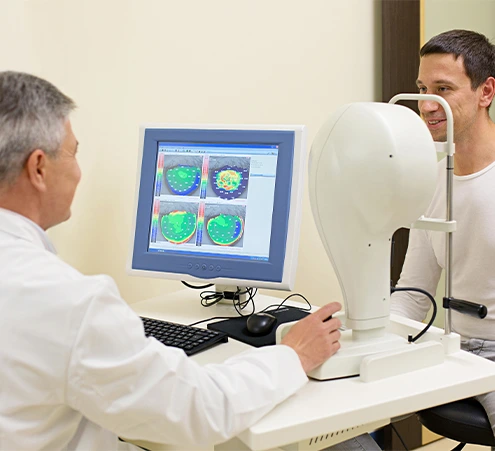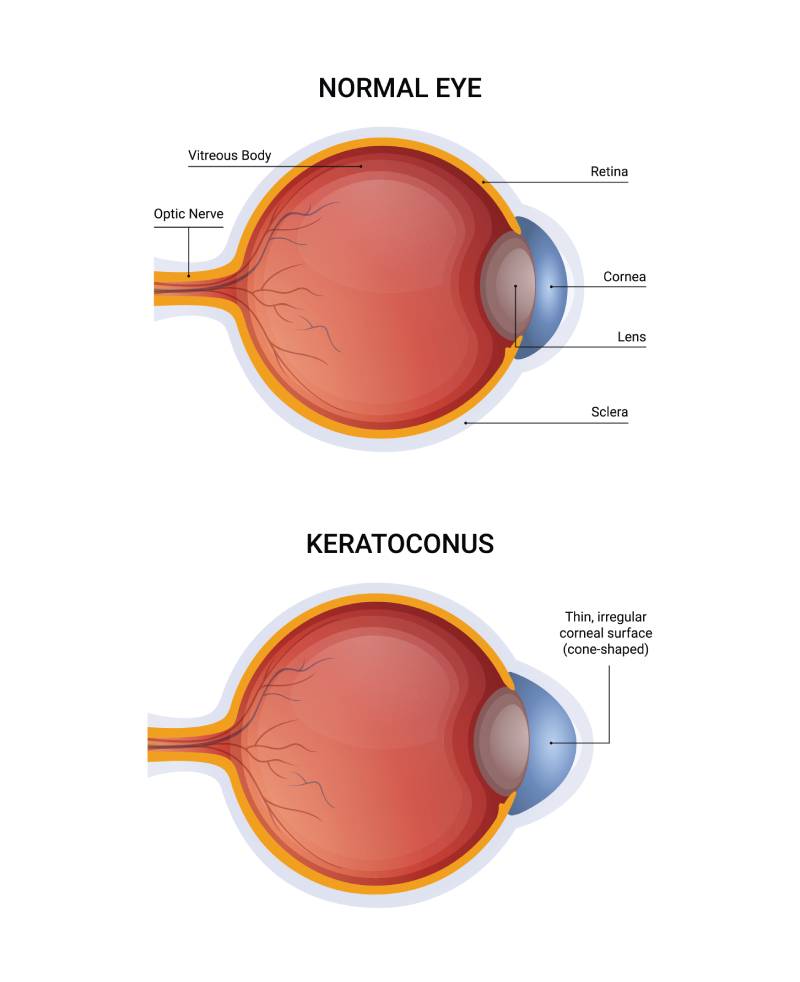Keratoconus is a progressive eye condition where the normally round cornea thins and bulges into a cone-like shape. This distortion can cause significant visual impairment by time, including blurred vision, increased sensitivity to light, and challenges with night vision. As the cornea continues to change shape, traditional corrective methods such as glasses or soft contact lenses may no longer provide adequate vision correction hence stopping the progression is the the first key in this condition, further more we have fast developing treatment including laser assisted treatments and surgical option which can improve quality of vision is more advance and progressed cases.
At our clinic, we specialise in providing cutting-edge treatments for keratoconus, offering patients access to the most advanced options that may not yet be available through standard eye departments. Our expertise includes innovative preventative procedures such as corneal cross-linking and cross-linking plus, which strengthens the corneal tissue to halt the progression of the disease, as well as advanced custom-designed surgical interventions like topography-guided laser treatments and implantable devices (such as Intacs or CAIRS) to reshape and stabilise the diseased cornea, significantly improving patients' quality of life.
Our state-of-the-art technology and personalised care ensure that each patient receives a treatment plan tailored to their specific condition, offering hope to those who may feel that their options are limited.
With a dedicated team of specialists and international advisory board as well as access to the latest research and technology, our clinic is committed to helping patients with keratoconus achieve better vision outcomes—providing solutions that go beyond what is currently available through healthcare services.

Keratoconus typically affects teenagers and young adults, though it can develop in anyone. It tends to progress between ages 10 to 25 but can stabilise with age. People with a family history of keratoconus, certain genetic disorders (e.g, Downs Syndrome), or those with chronic eye rubbing and allergies are at higher risk.
The exact cause of keratoconus is unclear, but it is believed to result from a combination of genetic, environmental, and behavioural factors. Risk factors include:

While keratoconus cannot be completely prevented, early detection and treatment can slow its progression. Reducing risk factors like avoiding eye rubbing and managing allergies may help lower the chances of developing or worsening the condition.
Keratoconus is diagnosed through a comprehensive eye exam, including:


|
Comparison |
Optimal Vision |
High street laser providers |
Hospital chains |
|---|---|---|---|
|
Free Consultation |
Consultant led |
Led by marketing |
Fee applies |
|
Aftercare Team |
Consultant led |
Various with no consistency |
Consultant led |
|
Duration of Aftercare |
20+ years - first year free |
Few months free |
Few months |
|
Fixed, Transparent Pricing |
✔ |
X |
X |
|
Consultant Led |
✔ |
X |
✔ |
|
Medication and Eye Drops |
12 Months |
3 Months |
X |
|
*** interest free credits |
12 Months |
X |
Variable |
|
Customised Wavefront Treatment |
✔ |
Cost Dependant |
Variable |
|
Meet Your Surgeon |
From the beginning all the way through your journey |
Day of surgery only with minimal interaction |
Partially - dependent on hospital |